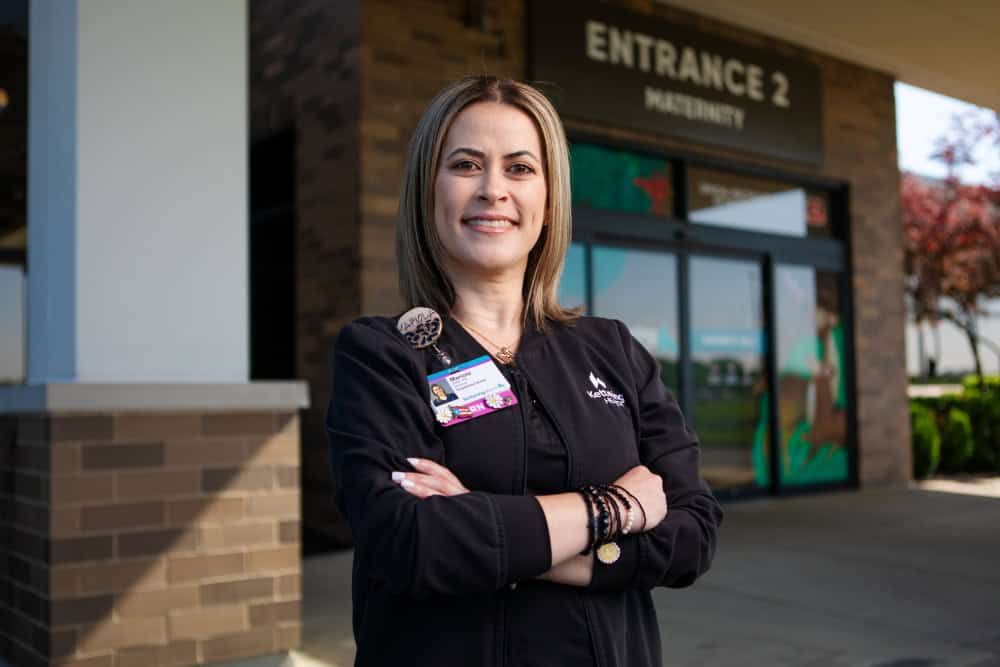Women’s Health
Want to learn more about this at Kettering Health?
Mariola Martinez-Rosado watches from the doors of Kettering Health Washington Township as a taxi approaches. A couple in their late 40s step out. They’ve arrived from the airport—and a journey of more than 2,500 miles.
Mariola greets them, expecting them to look elated. They’ve come to adopt their first baby. Instead, she’s met with expressions of confusion and worry.
Mariola knew the couple was arriving for their adoption, and was coming from Venezuela. She wasn’t aware they didn’t speak English.
A perfect pair
Mariola is the one for the job: she’s supported many adoptions in her 10 years as a Maternity nurse at Kettering Health. She’s also from Puerto Rico and fluent in Spanish. She learned English when she and her husband moved to Vermont in 2001.
She communicates with the couple and learns that beyond being scared and uncertain, they’re a little underprepared. They haven’t scheduled a follow-up appointment with a pediatrician, which is standard guidance one to three days after a baby is discharged. It’s late on Friday—and the baby will be discharged tomorrow.
There’s another concern: their phone batteries are low, and the chargers they brought are incompatible with outlets in the U.S. But they want to record the moment their baby is brought into the room.
Mariola hears her mom’s voice in her head, saying, “God opens doors for you, so you can open doors for others.” And she confidently steps into the couple’s uncertainty with a plan. She handles everything—from tracking down a phone charger to finding a pediatrician’s office that’s open and near to where they’re staying.
All the while, she settles their nerves. “[The language barrier] brings a scary part to the moment that should not be there,” Mariola said.
And because of Mariola, it wasn’t there for long.
“They asked me to knock on the door when the baby was coming,” said Mariola. “They had set the phone up to record the baby’s entry. It was just magical. It was such a blessing to be there, to be part of this.”
Breaking down barriers
The Maternity Unit knows to contact Mariola if there’s a patient whose first language is Spanish and she’s working. She’s told them, “Please let me know. Please put me with them.”
But Mariola can’t be there for every patient. She’s grateful KH has Martti™, a telehealth interpretation service. But, she says, in some instances, “you cannot replace the impact of a human.” Like in this scenario. Or like when Mariola supported a Hispanic mom after a miscarriage. Or like so many similar moments from across our system every day.
She also emphasizes hiring diverse employees so patients can see themselves in their caregivers. And, hopefully, any feelings of uncertainty and anxiety become ones of belonging and safety.
Her mom taught her well: Mariola opens doors for others every day.









